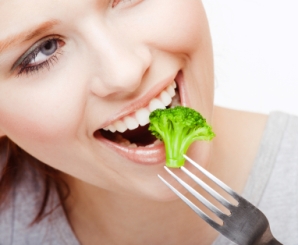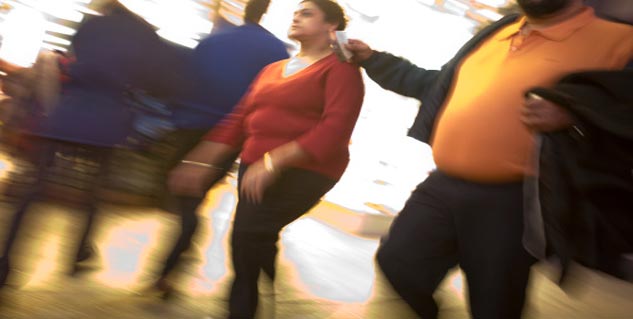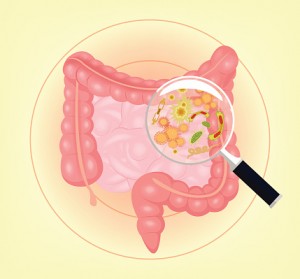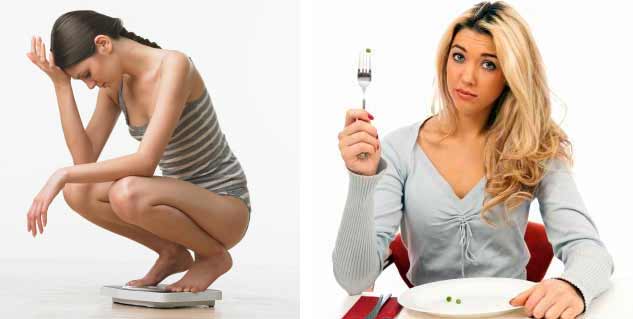The Macrobiotic Diet Summarized
The macrobiotic diet and philosophy were developed by a Japanese educator named George Ohsawa, who believed that simplicity was the key to optimal health. Michio Kushi expanded on Ohsawa's macrobiotic theory and opened the Kushi Institute in Boston in 1978. Together with his wife Aveline, Kushi published many books on macrobiotics and was responsible for popularizing the diet in North America.
The macrobiotic diet is a low-fat, high fiber diet that is predominantly vegetarian, emphasizing whole grains, beans and vegetables. In addition, the macrobiotic diet is rich in phytoestrogens from soy products. The macrobiotic diet has been used by people with cancer and other chronic diseases.
This diet is low in saturated fat and high in phytoestrogens, which may help to balance women's hormones and help with menopause, premenstrual syndrome, and prevention against breast cancer and endometriosis. The macrobiotic diet is low in meat, dairy products, and sugar.
People who practice a Macrobiotic lifestyle try to observe balance in everything they do. They strive for balance and happiness in their daily lives attempting to live in harmony with people, nature and their physical surroundings.
For those wishing to adopt the Macrobiotic diet, it is recommended that a person research it and either consult a macrobiotic counselor or make a gradual transition to the macrobiotic way of eating.
Health Benefits
There appear to be numerous health benefits that the macrobiotic diet can offer. When paired with a healthy fitness routine, the macrobiotic diet can help you to lose excess weight. And, because this diet focuses on foods that are low in saturated fats and high in fiber, it can also help you to lower your risk of:
- heart disease
- high cholesterol
- heart attack and stroke
What are the guidelines of this diet?
Whole grains -- 50-60% of each meal
Whole grains include brown rice, whole wheat berries, barley, millet, rye, corn, buckwheat, and other whole grains. Rolled oats, noodles, pasta, bread, baked goods, and other flour products can be eaten occasionally.
Soup -- 1 to 2 cups or bowls of soup per day
Miso and shoyu, which are made from fermented soybeans, are commonly used.
Vegetables -- 25-30% of daily food intake
Up to one-third of the total vegetable intake can be raw. Otherwise, vegetables should be steamed, boiled, baked, or sauteed.
Beans -- 10% of daily food intake
Cooked beans or bean products such as tofu, tempeh, and natto.
Animal Food -- Small amount of fish or seafood several times per week.
Avoid meat, poultry, eggs, and dairy.
Consume with horseradish, wasabi, ginger, mustard, or grated daikon to help the body detoxify from the effects of fish and seafood.
Seeds and Nuts -- In moderation.
Seeds and nuts can be lightly roasted and salted with sea salt or shoyu.
Local Fruit -- Several times a week.
Apples, pears, peaches, apricots, grapes, berries, melons, and other fruit. Avoid tropical fruit such as mango, pineapple, papaya.
Desserts -- In moderation, 2-3 times per week.
Desserts can be enjoyed by people who are in good health. Emphasize naturally sweet foods such as apples, squashes, adzuki beans, and dried fruit. Natural sweeteners such as rice syrup, barley malt, and amazake can be used. Avoid sugar, honey, molasses, chocolate, carob, and other sweeteners.
Cooking Oil -- Use unrefined vegetable oil.
The most common is dark sesame oil. Other oils that are recommended are light sesame oil, corn oil, and mustard seed oil.
Condiments and Seasonings
Commonly used seasonings include natural sea salt, shoyu, brown rice vinegar, umeboshi vinegar, umeboshi plums, grated ginger root, fermented pickles, gomashio (roasted sesame seeds), roasted seaweed, and sliced scallions.
Diet guidelines should be individualized based on factors such as climate, season, age, gender, activity, and health needs.
Yin and Yang
Macrobiotic eating follows the principle of balance (called yin and yang in the east). Products that are extreme are not suggested for regular use. No foods are forbidden but better quality natural foods are always suggested.
Foods that are over-stimulating can exhaust the body and mind. These are classified as extreme yin (stimulating) in their effects:
- sugar
- alcohol
- honey
- coffee
- chocolate
- soda
- refined flour products
- very hot spices
- chemicals and preservatives
- commercial milk, yogurt and soft cheeses
- poor quality vegetable oils
Foods that are very concentrated, heavy and dense create stagnation. These have yang (strengthening but stagnating effects).
- poultry
- meat
- Eggs
- Refined salt
Foods that create balance are whole cereal, vegetables, beans, sea vegetables, fruit from your local environment, nut and seeds.
Is This Diet Safe?
Many nutritionists and health care providers express concerns over the macrobiotics diet, particularly if it is followed strictly. Extreme macrobiotic eating can be very low in calories, posing a risk for starvation. The diet is also very low in essential vitamins and minerals, including:
- calcium
- iron
- vitamin D
- the B vitamins
Children and pregnant or breastfeeding women should not follow a macrobiotic diet. Those who do choose to follow it should consult with their health care providers about taking additional nutrient supplements.
A moderated version of the diet is recommended for most people, in order to be sure that they get all the calories and vitamins they need to maintain a healthy body.
You can view the complete article at http://astronutrition.com/blog/book/diets/mediterranean_diet
- Prev:The Atkins Diet Summarized
- Next:Diets Don’t Work!
-
Study Shows Vinegar Aids in Rapid Weight Loss
Major U.S. university finds that vinegar aids weight loss even in
-
Lose Stomach Fat In Your 50s: You Can Get A Flat Tummy With The Right Exercise To Burn Fat
You can lose stomach fat if you exercise
-
Fat Burning Tips
These fat burning tips can help you discover a fat burning secret that
-
Weight Loss Diet Reviews
Heres a look at some of the most common diets people are using.The Atk
-
How To Get In Shape Fast And Lose Weight With No Diet
You can get in shape fast and lose weight with no diet by making a
-
The Free Online Diets Offers
Free free online diets is distinct from freeware which is free on
- DON'T MISS
- Health Diet - The Importance of Losing Belly Fat
- South Beach Diet, Does It Work?
- Successful Techniques To Aid With Panic Attacks
- How Your Goals Differ From Your Wishes
- 8 Tips To Lose Weight Fast Naturaly
- Choosing Healthy Herbal Weight Loss Supplements
- Dieting: Nightmare vs Solution
- Low testosterone causes, symptoms and natural testosterone boosters
- Food Supplements To Reduce Stomach Fat
- Fasting before a cholesterol test is not mandatory: Study




